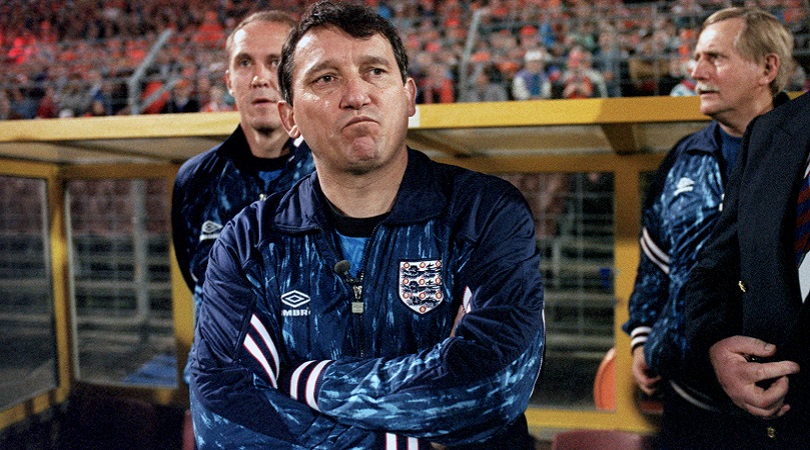
Oslo, June 2, 1993. One of the bleakest moments in the England football team’s recent history is about to get bleaker.
The national side trail 2-0 at half-time to Egil Olsen’s Norwegian long-ball merchants. World Cup qualification has slipped further from England manager Graham Taylor’s grasp. His duo of lieutenants, Phil Neal and Lawrie McMenemy, sit either side of him staring blankly into space.
A camera positioned on the ground points up at their faces, capturing their anguish and despair. Catching his own reflection in the lens, McMenemy uncharacteristically loses his cool: “Graham, you need to get rid of that for a start,” he snaps, pointing an accusatory finger at the camera. “You’ll f***ing hang yourself!” Taylor bristles, hissing back at him: “Lawrie, don’t you f***ing worry about it.”
This squabble was supposed to open what became the most controversial football documentary ever made but, thanks to the intervention of Taylor in the editing process, is one of several sequences that remain unseen by the public.
A camera crew had been following the England team for four months, Taylor having granted them unprecedented access to the inner workings of the national set-up. They would go on to capture one of England’s most ill-fated campaigns as Taylor’s side lurched from one disaster to another, cataloguing every argument, every slice of implausible bad luck, every gem of training ground banter and every tragicomic moment of heartbreak along the way.
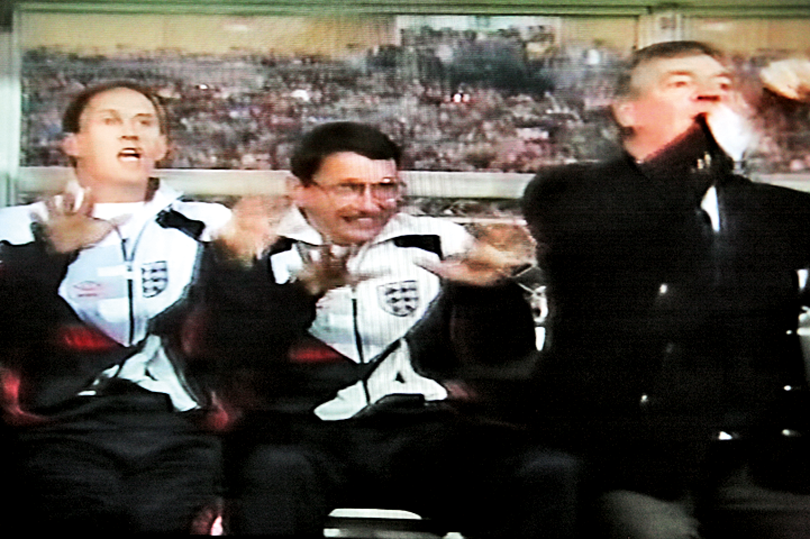
When it was first aired on Channel 4 in January 1994 under the title The Impossible Job, viewers and critics alike didn’t know whether to laugh or cry. From the jaw-dropping abundance of swearing, to the apparent idiocy of the coaching staff, to the plethora of Taylorisms that quickly passed into the national lexicon (such as the rhetorical “Can we not knock it?!” and the baffling “Do I not like that?!”), it had the whole nation engrossed.
Although many assumed him to have been the victim of a TV stitch-up, Taylor himself had been complicit in almost every detail of the project. And, 17 years later, he remained unrepentant: “I don’t regret it. In a way I’m proud,” he told FourFourTwo in 2021. “It was truthful, honest, soul-bearing and there was no hiding from anything. We didn’t try to dress anything up.”
You can say that again…
'I thought it was important that people saw the reality.'
In 1992, Neil Duncanson, head of a fledgling production company called Chrysalis Sport, was trying to develop a list show entitled The Worst Job In The World. One of the jobs on the list was that of England manager and Taylor had expressed an interest in taking part.
An abject showing at the 1992 European Championship had led to parts of the media and public turning against him. Taylor saw the documentary as a possible solution.
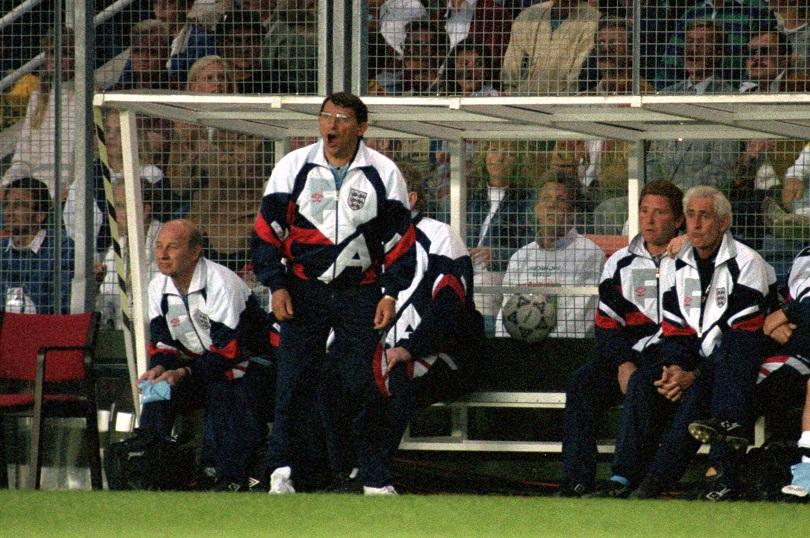
“I was two years into the job and I had started to learn how different it was to club management,” he said. “I thought it was important that people saw the reality. And, of course, I felt sure we would qualify for the World Cup at the time.”
Television channels weren’t interested in The Worst Job In The World but, with access to the England coach already secured, Chrysalis decided to focus the idea solely on him. “Graham had misgivings and said, ‘What if it goes wrong?’” recalled Duncanson. “I was honest and told him that win or lose, we’d film it regardless. And fair play to him, he agreed.”
Still no TV channels showed an interest in the idea, but such was the belief within Chrysalis, the company decided to self-fund the project with a view to selling it on completion.
Director Ken McGill was dispatched to England’s training ground to begin filming in earnest. “It was pretty boring, sanitised stuff to begin with,” he recalls. “Footage of the players training followed by very formal interviews with Taylor. I’m not a fan of that sort of thing: it didn’t reveal much and I knew we needed more.”
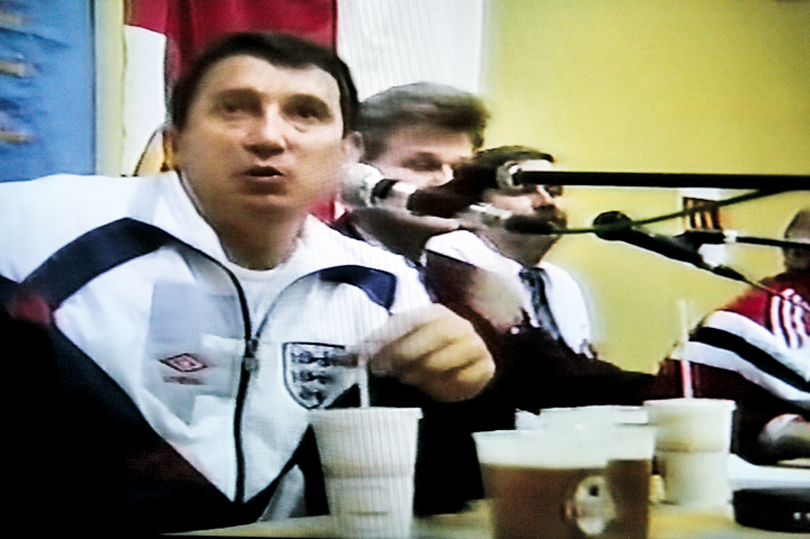
Slowly, McGill’s three-man film crew (him plus a sound recordist and cameraman) earned Taylor’s trust. “We were unobtrusive and tried not to ask for too much too soon,” he explains. “It was prior to the San Marino home game that we asked him if he’d be prepared to wear a radio microphone.”
The small, wireless recording device would allow the crew to capture Taylor at all times, even on the touchline during matches. There would be no pre-arranged questions, no guarded answers, just a raw rendition of what life as England boss was all about.
“Without the mics you wouldn’t have really got any insight,” said Taylor. “I understood the need for them to get that sort of access. If we were going to make a film I wanted it to be honest.”
In the summer of 1993, McGill’s team asked Taylor if they could accompany the squad for their back-to-back away fixtures in Poland and Norway. “That was my chance to duck out of the whole thing,” Taylor admitted. “I could have said, ‘Let’s call it a day here, don’t spend any more.’
"But by this stage I knew the press were aware of this film being made. I felt that if I withdrew from the filming it would be reported that I had lost confidence in qualifying.”
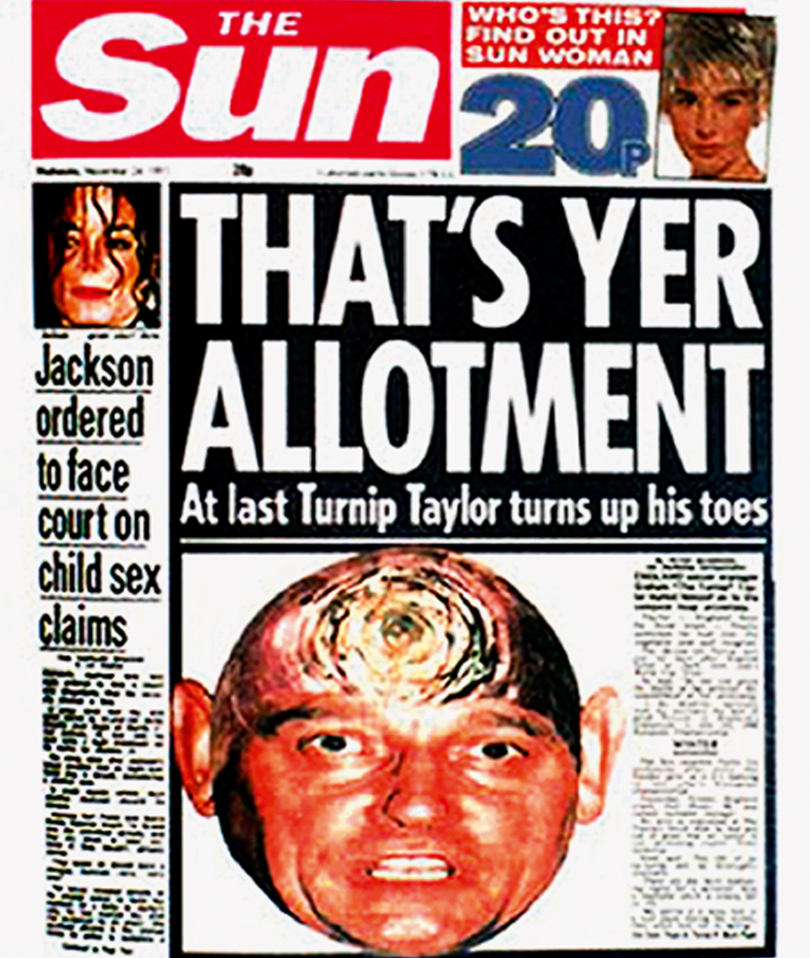
McGill is unconvinced that the press were as aware as Taylor supposed. “I was actually amazed by how little curiosity came from the press pack,” he revealed. “We were following Graham everywhere and so were they. I would have thought they’d have asked me what I was doing at some stage. But they never did.”
Rob Shepherd, who was reporting on the Three Lions for the now-defunct Today newspaper, agreed: “We weren’t really aware of the documentary being made. They [the film crew] were like wallpaper: we didn’t know they were there. They got genuine reactions because no one was playing up to the cameras.”
The trip allowed the cameras greater access to the players themselves, snatching unguarded conversations on the team bus, at the training ground and in the changing room.
In these scenes, the players seem mostly oblivious to the camera’s presence. It’s intimate stuff – and at times feels voyeuristic. At one point Ian Wright looks uncomfortably at the camera and asks, tellingly, “Where’s this going out then? Will my mum see it?”
Taylor insists the players were given a choice about appearing in the documentary. “From the outset, I told each of the players that they didn’t have to be involved if they didn’t want to be,” he told FFT.
“None of them said they had a problem with it, not to my face anyway. But I made sure we took out any bits that might have reflected badly on them. The film was supposed to be about me and I made sure the players always had the option to walk away from the cameras.”
Carlton Palmer disagreed. “Nobody knew about a documentary being made,” insisted the telescopic-legged midfielder, who at one point is seen impersonating the manager, telling Paul Gascoigne to his face that he won’t be selected because “you’ve got good feet but a f***ed up knee, a f***ed up brain and a f***ed up belly”.
“I don’t remember him giving us an option about whether we could appear and I didn’t know he was miked-up in training,” added Palmer. “I have a lot of time for Graham but I think everything that goes on between a manager and his players should stay private.”
Les Ferdinand, who joined the England squad two games into the campaign, shared this view: “I saw him being miked-up before training but didn’t know why,” he said. “Being new, I never asked. I only found out about it after the qualifiers.
"There’s an unwritten rule in football that what goes on in training sessions and changing rooms stays there. If you’re making a film and everyone knows it’s happening, then all well and good. But I certainly didn’t know about this one.”
One person who did know was David Platt, England’s best player under Taylor. In fact, later in the campaign, the midfielder even agreed to play up to the cameras on one occasion.
“Graham flew out to see me in Italy [before England’s home game with Poland, a month before the crunch clash in Holland] to say Stuart Pearce [who had been injured] would be returning as captain,” remembered the stand-in skipper.
“He told me in private, then asked me if I minded staging the conversation again for the film. He knew me well enough to know I wouldn’t mind, but some thought it was wrong to have him telling me on film that I wasn’t going to be captain for the next game.”
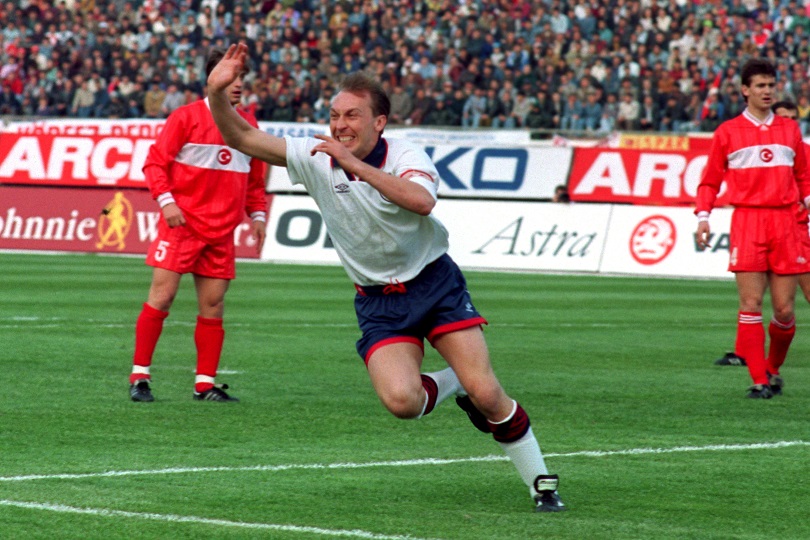
'The documentary destroyed me as a person'
Two days after an earlier draw in Poland, England crashed to that defeat in Norway. As the team crumble, and Taylor’s agitation intensifies (“We’re all over the f***in’ shop… they’ve done EVERYTHING we told them not to do!”), his coaches seem ever more ineffectual. Phil Neal wears a permanent expression of confusion, opening his mouth only ever to passively endorse and repeat Taylor’s words.
“Phil came in for such criticism for being a ‘yes’ man,” said Taylor. “But there was lots the cameras didn’t see. I didn’t allow them into meetings where Phil and I discussed players’ abilities and team selections. He had plenty to say then. But once you get to a match situation, your head coach has had his say and it’s time to get behind the manager.”
Neal himself is in no doubt as to the impact the documentary had on his career: “It destroyed me as a person,” he said. “I’d managed clubs and done well but after that documentary the knives came out for me. I was never trusted with any clubs after that and so I disappeared.”
He agreed that Taylor could have been more sympathetic in the edit. “He was in charge – the film was his thing,” said Neal. “He maybe should have seen other things that could have been included to balance it off.”
Despite this, Neal remained friendly with Taylor and positive about his reign. “The irony is, had Alan Shearer not been injured for most of the campaign we’d have probably qualified,” he shrugged.
Lawrie McMenemy was a silent and inscrutable figure throughout. “He never wanted to be a part of it,” said Duncanson. “He wasn’t getting paid [for the film] and Graham was, so maybe that was the issue. He threatened to sue us at one point – what for, I don’t know.” McMenemy rarely tried to hide his hostility towards the film crew.
“In the dressing room after the Poland game I remember him pointing at me and saying, ‘A f***ing Scotsman in the England changing room – I never thought I’d see the day',” remembered McGill.
McMenemy was ambivalent: “Pure and simple, it was Graham’s project that he negotiated through his agent,” he said. “I had little to do with it because most of my time was spent working with the England under-21 team.
"I noticed there was a camera crew following him around and I asked who they were. He just told me: ‘Don’t worry, it’s just a documentary they’re doing about me.’ And that was that. Graham was the boss, it was his decision and me and Phil just tried to get on with doing our jobs.”
'Thank him ever so much for that, won’t you?'
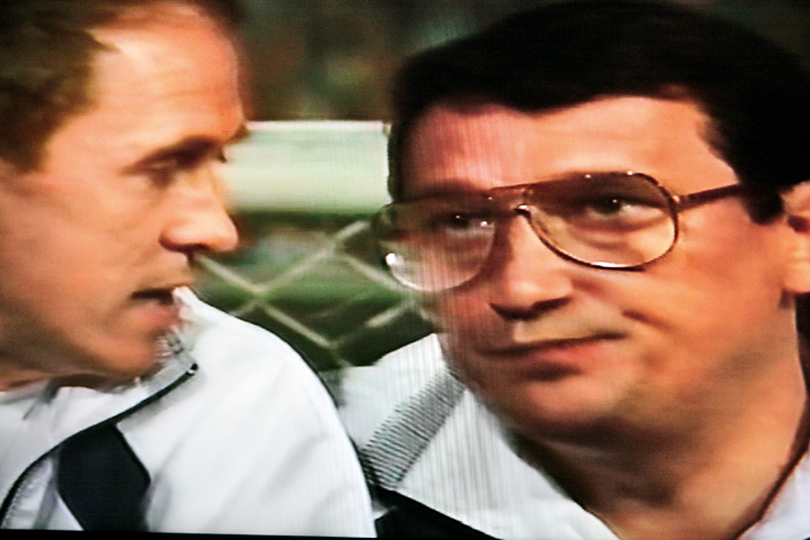
The film’s denouement was filmed in Rotterdam in October 1993, when England entered into their decisive fixture against the Netherlands. The Dutch FA were refusing Ken McGill access to the stadium and, with less than two hours until kick-off, he had all but given up. Eventually he asked Taylor for help.
“The next thing we knew, [England physio] Fred Street was loading our equipment into a kit bag and we were on the coach posing as members of the squad! We were desperate to get in but, being two Scotsmen and an Irishman, we drew the line at putting team tracksuits on.”
Having successfully slipped under stadium security (“I would have fought anyone who’d tried to chuck us out,” he said), McGill managed to keep the cameras rolling, capturing what became the film’s most memorable sequences.
Taylor watches in despair as Ronald Koeman somehow escapes a red card for a professional foul on David Platt and, then, minutes later, scores a free-kick at the other end. Taylor approaches the linesman: “I was just saying to your colleague that the referee’s got me the sack,” he says, patting him on the back. “Thank him ever so much for that, won’t you?”
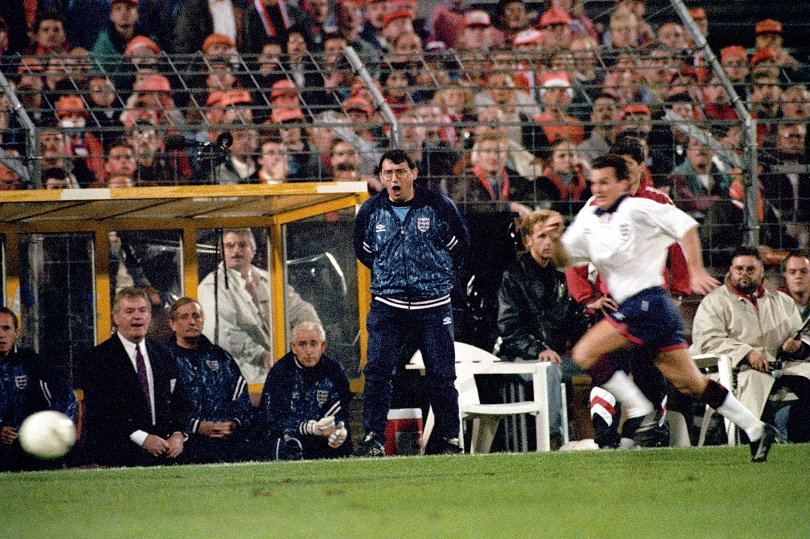
Taylor was indeed sacked the following month. As the press tore into him personally for failing to lead England to USA '94 (“It was a painful time for me and my family,” he admitted), the temptation might have been to run and hide. But Taylor had unfinished business with McGill.
“I took a cut of the finished film to show Graham at his house,” said the director. “As we watched it in his front room, I looked at his face to judge the reactions. It was an awkward situation, seeing him relive the pain.”
Meanwhile, Neil Duncanson had finally found a buyer. “I was so tired of being rejected by Channel 4’s documentary department,” he remembered. “They were terribly highbrow and looked down their noses at the documentary because it was about football.” Eventually, he convinced the head of programming at the broadcaster, John Willis, to view a cut of the film.
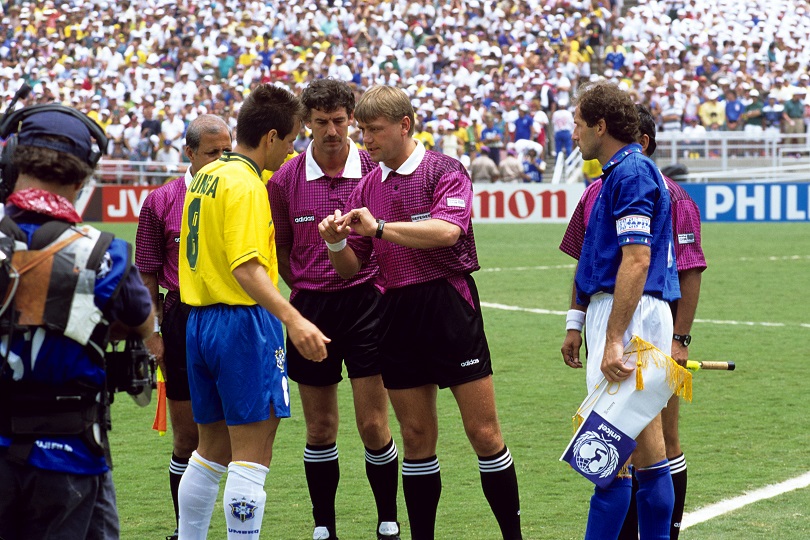
Willis sat down with Duncanson and Channel 4’s head of documentaries (who had previously rejected it) and watched an extended, 75-minute version. They remained completely silent throughout.
As the credits rolled and the lights went up, Duncanson looked at the pair to gauge a reaction. “The head of docs was looking at John as if to say, ‘See what I mean? This is no good.’ Then John just turned to me and said, ‘How much do you want for it?’”
In early 1994, Chrysalis Sport leaked a small story to The Guardian, stating that Channel 4 were set to broadcast a documentary that would break the record for televised expletives. Word began to spread that Taylor would be the subject.
“At the press screening, we had people hanging from the light fittings,” recalled Duncanson. “It all took off from there. It was the most watched Cutting Edge documentary Channel 4 ever screened.”
The Impossible Job also went on to win an award from the Royal Television Society and, years later, was voted by industry peers as one of the top 50 documentaries of all time.
“People still talk about it today because it’s like a historical document,” said Duncanson. “We recorded stuff that hadn’t been captured before and never will be again. I’ve been asked by broadcasters to do something similar with every England manager since but it would be impossible. There’s so much control now.”
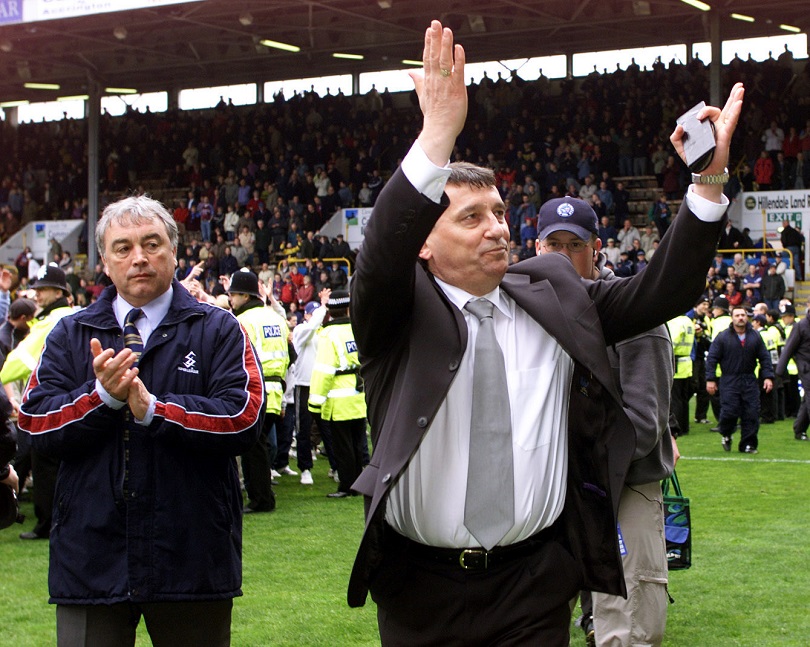
While the documentary itself was critically acclaimed, Taylor was vilified further for his performance. For McGill, this was hard to stomach. “I liked Graham, I knew he was decent, I had wanted to give a positive portrayal,” he admitted. “So when everyone started making him out to be an idiot, I thought, ‘How could I have got it so wrong?’”
But Taylor bore no grudge, even attending McGill’s wedding in the summer of 1994. "The criticism of me had nothing to do with the documentary and everything to do with us not qualifying,” he said. “Had the results been just fractionally different we’d have got through and everyone would have seen that film in a whole different light.”
Taylor managed to rebuild his career and reputation with second spells at Watford and Aston Villa respectively, before becoming a respected media pundit. In hindsight, he had only one regret over the making of the famous documentary. “‘Do I not like that?’ was a great quote,” he said. “I don’t know where it came from. I only wish that I’d copyrighted it. I could have made millions!”
This feature originally appeared in October 2021. Get the latest issue of FourFourTwo now!
More England features
Before Three Lions: How Baddiel and Skinner’s Fantasy Football defined football in the 1990s
What happened to England's Golden Generation? Why the country's most talented squad never came good
Gazza, the untold stories: Need-to-know tales that launched a legend







